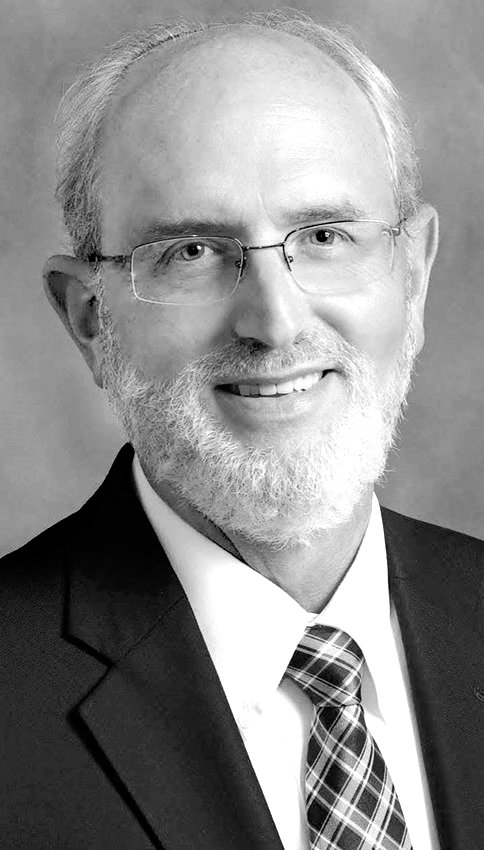Our journey to redemption
The festival of Passover is known by two names. Our sages called it “the time of our freedom,” because it is our celebration for God gifting us our exodus from Mizraim (Egypt). Of course, while the sages may call it that, the Torah calls it “The Festival of Matzot,” the “Festival of Unleavened Bread.”
If you are like me, you must be growing weary of having to eat nothing but that flat, rather tasteless dough that was never given a chance to ferment and rise. Matzah is also known as the “bread of affliction” that our ancestors ate in Mizraim.
After a long day of serving their masters, B’nai Yisrael prepared the simplest meals possible. That is why the matzah we eat today represents the same “bread” our ancestors hurriedly prepared then and during their journey to freedom.
I do not know about you, but if we are celebrating our freedom, is it not strange that our release from enslavement by that powerful, totalitarian pharaoh is symbolized by us having to eat half-baked pumpernickel flour and water that we do not allow to rise?
Not only that, but with all that lack of freedom over what we can eat, there is one thing we are free to do; we are free to read the magnificent Shir Hashirim, The Song of Songs. This, of course, is the love song between Shlomo and Shulamit, the shepherd and the shepherdess that represent the love that God and the people Israel share.
Interestingly, this Shir, this Song, is a poem about an adoring lover in pursuit of love, which does not have a successful conclusion. No, it does not! Instead, it is more like a game of hide-and-seek, following which the search for love and unity remains unanswered.
When the beloved finally opens the door, the lover has already left. Chapter 8, Verse 14, the very final verse of Shir Hashirim, cries out: “Make haste, my beloved, and be like a gazelle or like a young hart upon the mountains of spices.”
So, what is going on? It is important that we take the time to understand that there is a huge difference between the way the world thinks and the way the Jew is taught to think. In our Western culture, all we have to do is watch the news and we will notice that society wants the bottom line and wants it right now! Everything is viewed from the perspective, “Did you win or did you lose?”
If we look back at what we Jews are taught, we are more interested in how something happens than we are in what happens. We are taught to search for the meaning of what is going on and how we got to where we are. We are taught to care more about how we played the game than the score at the end of the game.
Why is this? Jews base our existence on mitzvot, halakhah and minhag, God’s commandments, Jewish law and customs. While halakhah may be known as “Jewish law,” a more literal translation is “the path” or “the way of walking.” In other words, halakhah does not just apply to Jewish law, it applies to how we, as Jews, do everything during our lives. It influences everything we do. Halakhah is not just a guide as to what to do and what not to do –it offers a process for how to live an ethical, moral, godly and practical life.
Since Pesach is the first festival based on the first mitzvah God gave B’nai Yisrael as a nation, it represents the beginning of our process; it offers us a road map to redemption that began by taking us out of slavery.
And where did God take us? The slaves who were freed spent the rest of their lives making their way through the desert. It would take another generation before they would get to Eretz Yisrael.
But who is kidding whom? We have spent the last 5,000 years waiting for this promised redemption. We have prayed and prayed and begged and begged for the mashiach (messiah) to come in our lifetime, but we still wait.
That is the meaning behind The Song of Songs. Love is not a bottom-line result; love is a process, and waiting for the Messianic Age may be the most important process of all because, just like loving someone is a process, so is the coming of the mashiach. Just like we have to work to be loved, we have to work to be worthy of the coming of the mashiach.
It is not enough to just want it, it is not enough just to have faith that it will arrive; it is the process, the journey we take that makes it possible.
That is why, during the Pesach seder, the questions are actually much more important than the answers. And when our time comes to meet our loving Creator, God will not care what the score was, God will not care whether we won or lost; God will only care about how we played the game.
One thing is for sure: if we cheat, if we advance by trampling others, if we call others names or disrespect them, we did not play by the rules.
As we celebrate Pesach 5783, let us all play by the rules that teach us to love our neighbor and be kind to one another. The rules that teach us that my friend is the path that we must be on to bring Shalom to our world as we celebrate redemption.
From our house to your house, chag Kasher v’sameach.
RICHARD E. PERLMAN is the senior rabbi at Temple Ner Tamid, in Peabody, Massachusetts, a member of the Board of Rabbis of Greater Rhode Island, and immediate past president of the North Shore Rabbis and Cantors Association.








